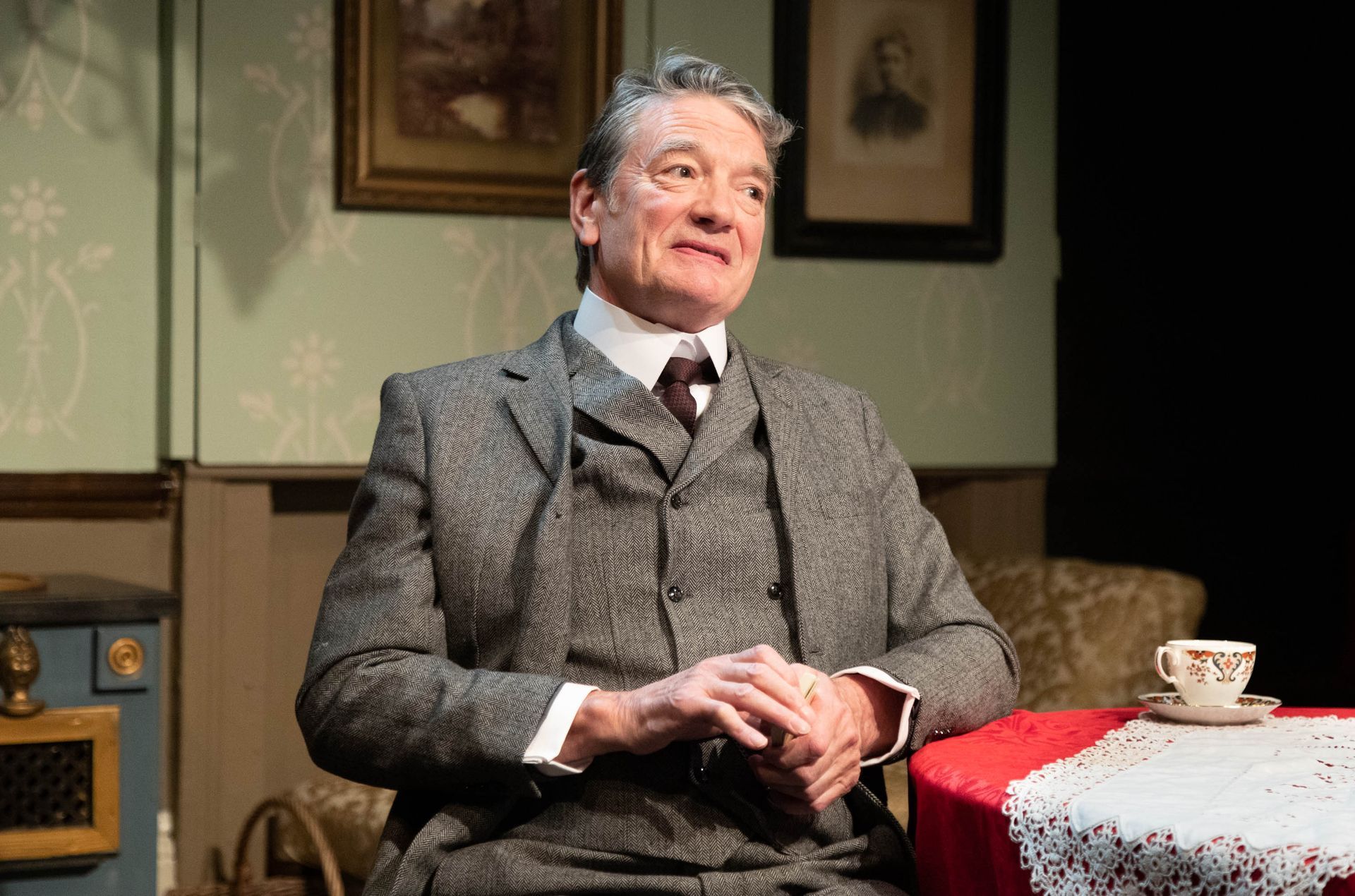REVIEW: Makeshifts / Realities / Honour Thy Father at Finborough Theatre 8 August - 2 September 2023

‘how far we have come in the quest for women’s equality’ ★★★★ ½
Two plays written by the remarkable Gertrude Robins and one by the prolific turn-of-the century playwright, H.M. Harwood provide an opportunity to hear voices from the past and remember how far we have come in the quest for women’s equality.
Makeshifts / Realities
Gertrude Robins was a fascinating woman: an actor, pilot, and wife of an artist. Her play, Makeshifts, was first performed in 1908. Two sisters speak plainly about their bone tiredness and their fears for their futures while reading and stitching in their simply adorned parlour. One sister, Caroline (Philippa Quinn) is obviously expecting a guest to arrive, while the other, Dolly (Poppy Allen-Quarmby) is morose about her lot without a man in her life.
Subtle moments in the dialogue give away how dire their situation is and also their views on the suffrage movement. The teacher can’t imagine what she could do with “the Vote” but the housebound sister clearly has alignment with the Suffragette movement. As they gossip, we learn that the idea of a servant sitting with the family who employ them is ludicrous, showing the quicker shift in women’s rights before supporting class mobility.
The appearance of arrogant Mr. Smythe (Joe Eyre) changes the energy in the parlour, with his self-aggrandising manner and grating laugh, we immediately see the impact he has on the sisters when he arrives. The shift happens when Mr. Smythe makes an announcement that disappoints both sisters.
In the second play, Realities, two years later Caroline faces her past and choices. Yet, humble Mr. Thompson (Akshay Sharan) really gets an opportunity to come into his own at the end, after playing a bit of a dullard for the entire Makeshifts play. We also learn of the challenges of parenting choices of the turn of the century, which seem to be surprisingly not so different from that of today.
Both plays, beautifully and subtly executed, linger in the mind as the authentic voice of Robins gives life to an important time in women’s lives a century ago.
Honour Thy Father
In Honour Thy Father, we are transported to Bruges in 1912, where a family is eagerly awaiting the arrival of daughter Claire (Poppy Allen-Quarmby) from London, where she has a job that provides the means for the family to live and her sister to study.
The cast’s roles change and we are introduced to the father, Mr. Morgan (Andrew Hawkins), a financially ruined man, who is immensely watchable in this calamitous family drama as he goes from the husband who has to ask his forbearing wife (Suzan Sylvester) for money to pay for his gambling debts to the angry parent berating his daughter before he is reminded of his place. Mr. Stearn (Sharan) plays a sleazy single Englishman living in Bruges who has been taken under the wing of Mr. Morgan and takes his money at card games.
Again, with subtlety, we have a necessary power shift that speaks to the challenges of the time for an uneducated woman to make her way in the world.
These plays transport us in time through beautiful costumery (Carla Joy Evans), ambience (Lighting, Jonathan Simpson; Set Designer: Alex Marker) and sound (Farokh Soltani). The Finborough Theatre reminds us time and again that we can hear and learn from the voices of the past; they are there to be heard, even if we have long forgotten they were there. And they are still relevant.
Photos by Carla Joy Evans
Makeshifts / Realities written by Gertrude Robins
Honour Thy Father written by H.M. Harwood
At Finborough Theatre
Box Office https://finboroughtheatre.co.uk/production/makeshifts-and-realities/
Performed by Poppy Allen-Quarmby, Joe Eyre, Andrew Hawkins, Beth Lilly, Philippa Quinn, Akshay Sharan, Suzan Sylvester
Directed by Melissa Dunne
Intimacy Director: Tian Brown-Sampson
Designers: Alex Marker, Carla Joy Evans, Jonathan Simpson, Farokh Soltani
Producer: Andrew Maunder
Reviewed by Mariam Mathew









